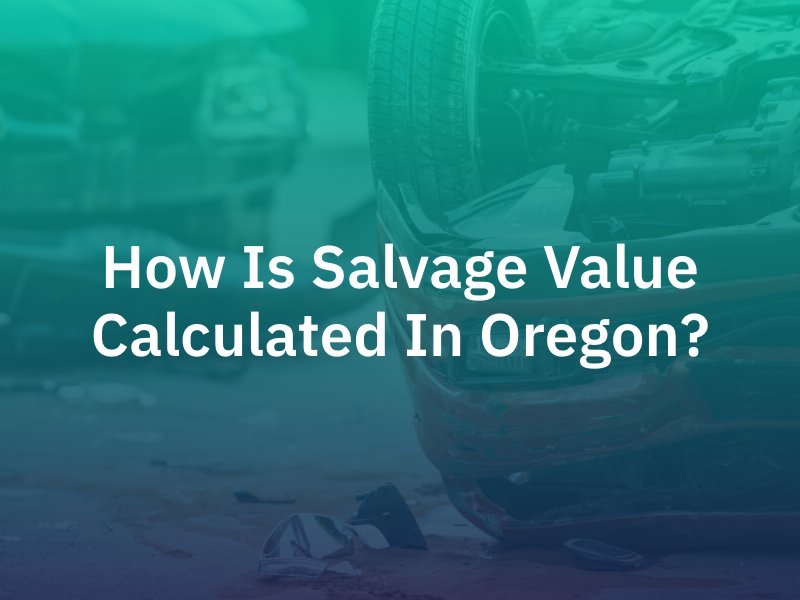How Is Salvage Value Calculated In Oregon?
Posted on June 8, 2020 in Car Accident
Vehicle accidents in Oregon can be devastating for victims. Not only do those involved in car accidents have to deal with the possibility of injuries, but they will also have to deal with damage to their vehicle. For severe accidents that result in extensive damage to a vehicle, the insurance company may make the determination the vehicle is not worth the cost involved to repair it. In these cases, the vehicle will be considered a “total loss.” But, who makes the determination as to what it means that a car is “totaled,” and how is the value determined?

Oregon law regarding insurance companies and totaled vehicles
By law, car insurance carriers in Oregon must:
- Provide the vehicle owner with written notice explaining the total was. The notice should include how the valuation was determined as well as steps the owner can take if they disagree with the evaluation.
- Provide the vehicle owner with valuation or appraisal reports that were used to determine the value of the vehicle.
- Pay the vehicle owner any amount that is not in dispute, even if negotiations over the valuation continue. For example, if the insurer is offering $7,000, but the car owner is seeking $10,000, the insurer should pay the $7,000 that is not in dispute.
- Reimburse the vehicle owner for reasonable appraisal costs. The stipulation applies when the vehicle owner has the right to seek appraisal, and the final value determined is higher than the last offer the insurance company puts forth.
How does the insurance company calculate a salvage value in Oregon?
In general, most car insurance carriers will determine that a vehicle is not worth repairing if the repair cost will be more than a certain percentage of the vehicle’s actual cash value (ACV). Typically, this is around 80% of the vehicle’s ACV.
To determine a vehicle’s actual cash value, insurance carriers will use the year, model, make, mileage, and overall condition of the vehicle. Insurance carriers will typically use their own software when they are determining the actual cash value of your car. While you, as the insured, will not have access to their programs, you can use various resources available to consumers and get an idea as to whether the insurance carrier is offering a fair amount. This includes evaluation services provided by Kelley Blue Book, Edmunds, Auto Trader, and other widely used vehicle appraisal services.
If you have any receipts that show recent repairs or upgrades to your vehicle, this can be used in computing the total replacement cost. For example, if your vehicle has a new engine, transmission, tires, this could push your vehicle’s value upward.
Oregon total loss claims and what the car owner can do
If the insurance carrier in Oregon has determined your vehicle is a total loss, then you will have two options:
Accept a full settlement
If you accept the full settlement, the insurance will pay the agreed-upon amount, and you will sign over the car title to your insurance carrier. You will no longer be responsible for your vehicle.
Accept a partial settlement
In this scenario, the insurance carrier will pay you partial damages, but you will keep the vehicle. You will then be able to sell the salvage vehicle to a scrap dealer, vehicle recycler, or vehicle dismantler. You could also choose to apply for a salvage title in Oregon, repair the vehicle and have it inspected, and get the vehicle re-titled for use on the roadway.
Call us today to speak with our Portland car accident attorneys.
